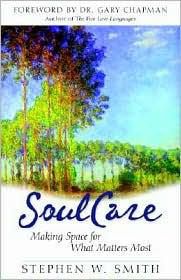 I was speaking with “Gwen” not that long ago, and she was telling me about an emotional subject. The words, “Oh my God” escaped her lips. She stopped. She looked around, and then with a look I would have to describe as panicked, she said, “I’m so sorry. I know God doesn’t like if I do that.”
I was speaking with “Gwen” not that long ago, and she was telling me about an emotional subject. The words, “Oh my God” escaped her lips. She stopped. She looked around, and then with a look I would have to describe as panicked, she said, “I’m so sorry. I know God doesn’t like if I do that.”
I didn’t want to make anything of it, so I encouraged her to continue her story, but later I starting thinking about what happened. She was feeling afraid. It was fear she felt toward God when she apologized.
Because God made us as relational beings, I wonder if we need to do better than being afraid of God. I know as a parent, I want to love my children and have them love me, not fear me. I want them them to respond to me and with me, not just respond out of fear of something happening to them. I enjoy my place as parent, rather than their peer. I do want honor and respect, and I try to offer that to them. But, if they operate in a way where they look over their shoulder every time they do something, I think I sense I have failed in some major way in relating to them, and parenting them. I will not have established a relationship of trust, and healthy love and caring.
I wonder if Gwen will feel close enough to God to feel unafraid one day. I wonder if she will feel he loves her dearly, and knows all about her, and still loves her just exactly the same. The fear comes from her own expectations, and probably what she has been told about God, but not God’s nature, and what God desires for her. He wants closeness, intimacy, and free reciprocal communication. He doesn’t want a cowering servant, always afraid to do or say the wrong thing that may displease him. Pagan gods were temperamental, but in contrast, Yahweh was and is not. I think the God image in her mind might look close to the dad she had, or some authority figure. But, the Lover of her soul, cares for her so deeply it would blow her mind.
Have you been afraid of God? Do you know someone who is? What has been the effect?
 I have lots of questions rolling around in my mind right now because of school. My project is to interview 2 leaders from two ministries or churches to find out how they approach spiritual formation/education in their contexts and among their community of believers. The questions are penetrating. Here are just a few:
I have lots of questions rolling around in my mind right now because of school. My project is to interview 2 leaders from two ministries or churches to find out how they approach spiritual formation/education in their contexts and among their community of believers. The questions are penetrating. Here are just a few:






 I was speaking with “Gwen” not that long ago, and she was telling me about an emotional subject. The words, “Oh my God” escaped her lips. She stopped. She looked around, and then with a look I would have to describe as panicked, she said, “I’m so sorry. I know God doesn’t like if I do that.”
I was speaking with “Gwen” not that long ago, and she was telling me about an emotional subject. The words, “Oh my God” escaped her lips. She stopped. She looked around, and then with a look I would have to describe as panicked, she said, “I’m so sorry. I know God doesn’t like if I do that.”